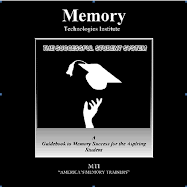We form long term memories that can be affected by 3 things. The 3 things interfere with our retrieval system to recall those same long term memories. The three are clogging at the synapse, gradual deterioration of neuronal pathways ultimately involved and the final but big one STRESS! The clogging can occur when over time you have a collection of protein particles that accumulate at the synaptic gap. Sometimes referred to pre-gap or dendrite cloggers, or post-gap sometimes referred as axonic cloggersj they can be a problem.
Now let me try to give that to you in layman terms. Let's say you have a microscope that builds a film around the lens causing it to blur like someone wearing a contact lens and protein from their eyes builds up causing clogging. So like a soapy water can wash the lens of the film so can our body clean the receptors by using something called calpain which comes from calcium. The neuronal clusters are the makings of our memories. So they need to be kept pliable and not become brittle. Clinical research has shown that something called amyloidal proteins build up rock hard in Alzheimer's patients and stop effective transmissions of the neurotransmitters required to store and retrieve memories. The process is normally due to deficiency in our acetylcholine which is necessary to break down the amyeloid proteins. We normally get the acetylcholine from fat.
So dietary low fat diets cause low levels of our acetylcholine neurotransmitter production which is essential in the membrane maintenance. Some neurons deteriorate naturally with age. The one source of deterioration that we can control is the Acetylcholine production as a neurotransmitter for cell membrane maintenance we can control it somewhat through some high fat diets. However normal or high fat content in your diet will not necessarily ensure sufficient levels of acetylcholine. The reason is other factors like hereditary genetics, medications, diseases and unhealthy stress can cause a deficiency or low acetylcholine levels negatively as well.
Where stress plays such an important role is when the limbic system of your brain works to much in the foreground of proper brain activity. The limbic system then causes drastic reduction in the cortical systems of the brain, therefore resulting in memory retrieval that is less than desirable, both highly ineffective and unreliable during high periods of stress. It's almost like your brain says, "hey if you put me under stress then I am out of here until you take the stress off of me". Now that's a little animated but it's probably pretty much the way it is.
Elderly individuals tend to have problems with short term memories, originally thought to be due to the cognitive decline of our mind and ultimately being tied to age related symptoms. New research into the plasticity of the brain is rapidly disproving such a theory. Sure people that are older have more pains and tend to get depressed from time to time but that doesn't equate to their contracting Alzheimer's. The truth is it's primarily MCI or mild cognitive impairment which can be improved upon with training of the working memory. Short term memory problems in many seniors are stress related and loss of self confidence more than anything else a lot of times. Sadly though their are to many cases where it is more serious than that and actually the onset of early Alzheimer's.
Memory deficiencies many times that were originally thought to be age related cognitive decline can be the lack of proper exercise, lack of sleep, insufficient levels of dietary fats and general lack of self esteem or confidence. It tends to fuel the theory that if you don't think that you can remember anything you generally don't. The self full filling prophecy sometimes kicks in to take over your efficiencies or I should say deficiencies. So to answer the question can stress cause our forgetfulness the verdict is most certainly yes!
One of the methods used to enhance your memory efficiency is to train the working memory so that through preparation the stress level is reduced through mindful based stress reduction. There are 4 generations of Mnemonics - or the science of memory taught in our company. The first is the basic association; second the chain of visualization or story telling-linking method. The third is the peg system, and the fourth is mental file folders processing. Research published in the New York Times in April of 2008 cited a study conducted and presented at the PNAS Proceedings of National Academy of Sciences. The study essentially showed how by training the working memory a person could improve their fluid intelligence thus improving their ability to remember. The study showed that all participants improved substantially in fluid intelligence. Moreover the more they trained the higher their scores were. All from the weakest to the strongest showed significant improvement. The reason is everyone has an innate ability to have a perfect memory it's just that it has to be formally trained. The main key factors discovered in the study were, 1) ignoring irrelevant items, 2) monitoring your performance, 3) doing two things simultaneously, and 4) connecting related items to one another in space and time
So the thought that our cognitive decline is age related is currently being overthrown by the new mind body technology being discovered in the research of the plasticity of the brain! These are exciting times in terms of the ability of the mind to improve itself. So don't fall into being one of those people that believe that they have passed the time that they can learn or improve themselves. You can learn until the day you die if you just apply yourself. I have a passion for the potential being a psychologist with dyslexia and ADHD. Mnemonics has changed my world and my life of learning has taken on exciting new avenues.
Friday, February 25, 2011
Subscribe to:
Post Comments (Atom)










No comments:
Post a Comment